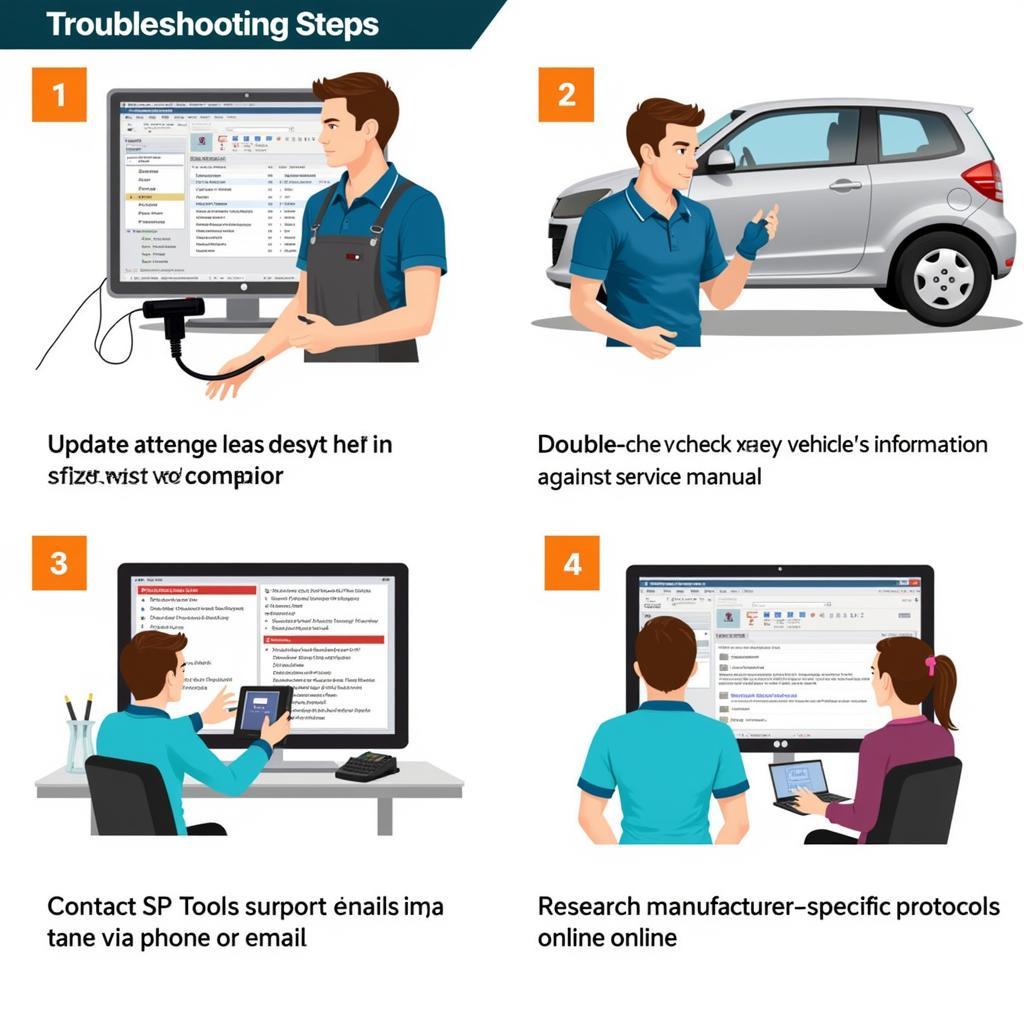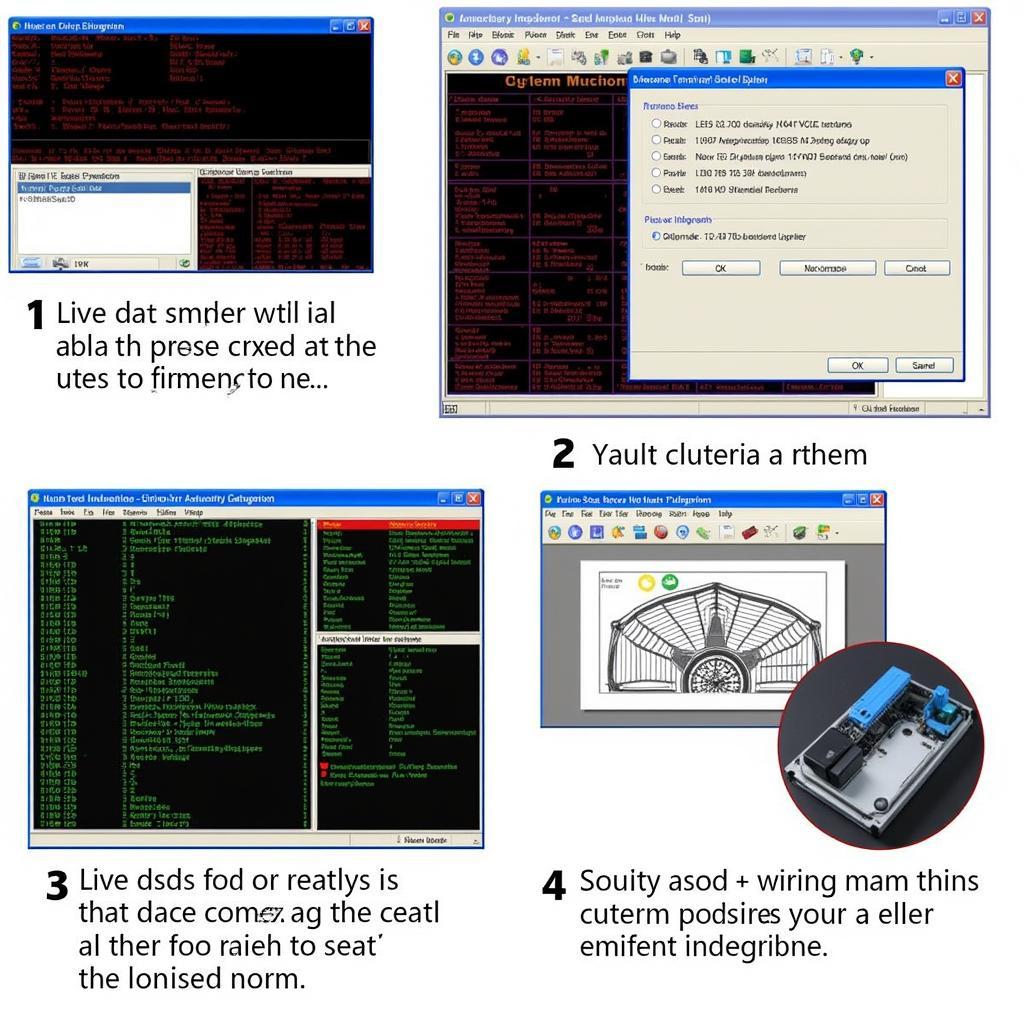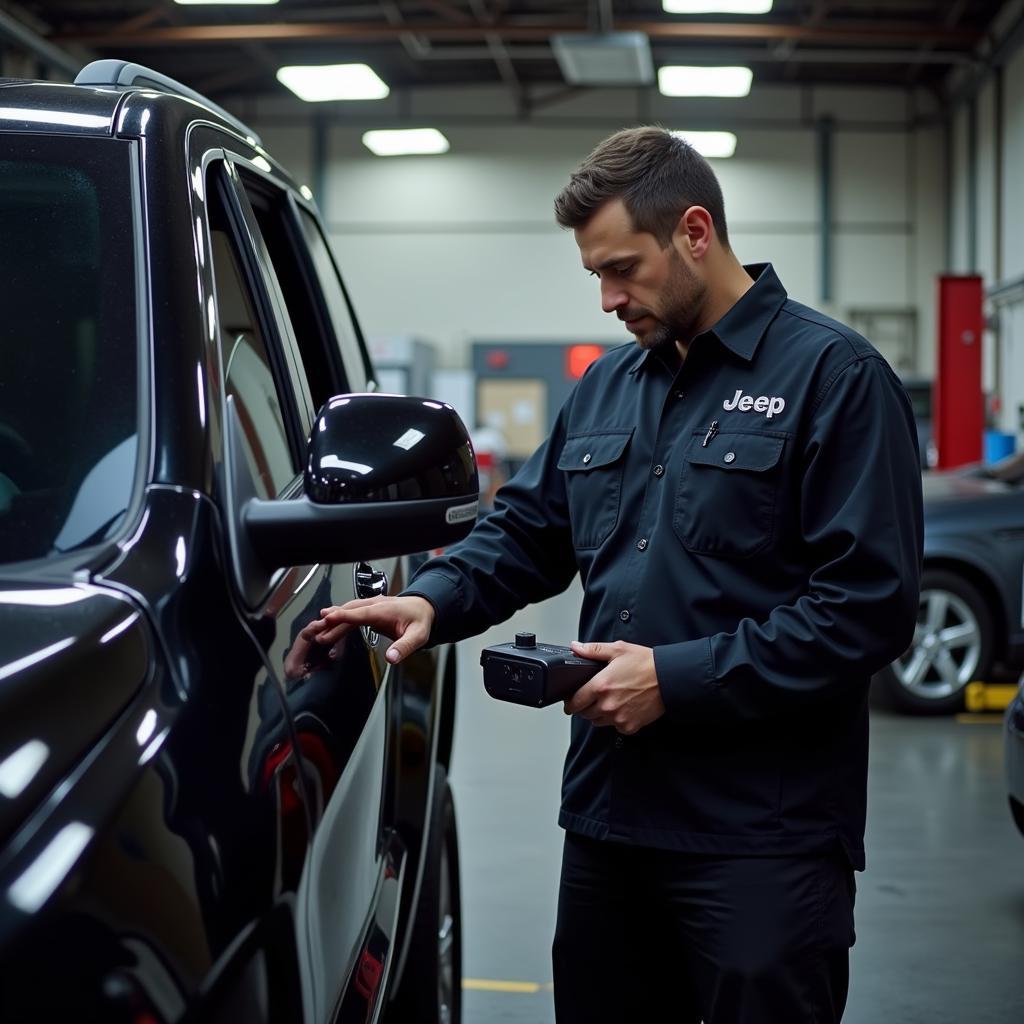Understanding the compatibility of your SP Tools OBD scan tool is crucial for effective vehicle diagnostics. Whether you’re a professional mechanic or a car enthusiast, choosing the right scan tool and ensuring it works seamlessly with your vehicle’s make, model, and year is essential. This guide delves into the intricacies of Sp Tools Obd Scan Tool Compatibility, providing valuable insights to help you make informed decisions and troubleshoot any compatibility issues you might encounter.
Choosing the correct OBD scan tool can be a daunting task, especially with the wide variety of options available on the market. It’s essential to understand the specific protocols and communication standards used by your vehicle to ensure compatibility with your chosen scan tool. SP Tools offers a range of scan tools designed to cater to different needs, from basic code readers to advanced diagnostic platforms. Finding the right balance between functionality and compatibility is key to efficient and effective vehicle troubleshooting.
What protocols does my vehicle use? Many modern vehicles utilize the standard OBD-II protocol, but some manufacturers, particularly those producing European or Asian vehicles, may incorporate proprietary protocols alongside the standard OBD-II. Understanding these nuances can save you time and frustration. For example, some SP Tools scan tools are specifically designed for European vehicles and offer enhanced compatibility with these proprietary protocols. Similar to a touchscreen car diagnostic scanner tool code reader, choosing the right SP Tools scan tool ensures you can access all the necessary data for accurate diagnosis.
Decoding SP Tools OBD Scan Tool Compatibility
SP Tools scan tools are renowned for their robust functionality and broad vehicle coverage. They cater to various vehicle makes and models, spanning different years and geographic regions. However, compatibility isn’t always guaranteed, and certain factors can influence whether a specific SP Tools scan tool will function correctly with your vehicle.
Understanding OBD-II Protocols and Your Vehicle
OBD-II, or On-Board Diagnostics, Second Generation, is a standardized system that allows external devices, like scan tools, to access diagnostic information from a vehicle’s computer. While the standard is widely adopted, subtle variations and manufacturer-specific protocols can sometimes create compatibility challenges.
Key Factors Affecting SP Tools OBD Scan Tool Compatibility
Several factors play a crucial role in determining compatibility:
- Vehicle Make and Model: Different manufacturers implement OBD-II slightly differently. Ensure your chosen SP Tools scan tool explicitly supports your vehicle’s make and model.
- Year of Manufacture: OBD-II implementation has evolved. Older vehicles might not adhere to the same standards as newer models. Verify the scan tool’s compatibility with your vehicle’s year of manufacture.
- Specific Protocols: Beyond standard OBD-II, some vehicles use manufacturer-specific protocols. Confirm your SP Tools scan tool supports these if necessary.
- Software Updates: Regular software updates for your SP Tools scan tool are essential to maintain compatibility with newer vehicle models and evolving diagnostic standards.
Troubleshooting SP Tools OBD Scan Tool Compatibility Issues
If you encounter compatibility problems, try the following steps:
- Check for Software Updates: Ensure your scan tool has the latest software installed. This often resolves compatibility issues.
- Verify Vehicle Information: Double-check that you’ve entered the correct vehicle make, model, and year into the scan tool.
- Consult SP Tools Support: Contact SP Tools directly for assistance with specific compatibility issues. They can provide tailored guidance based on your situation. An obd2 scanning tool often encounters similar compatibility challenges.
- Check for Manufacturer-Specific Protocols: Research your vehicle to see if it uses any proprietary protocols. If so, ensure your scan tool supports them. For example, certain SP Tools scan tools, like the vident ilink400 au scan tool, are designed to handle specific manufacturer protocols.
 Troubleshooting SP Tools OBD Scan Tool Compatibility Issues
Troubleshooting SP Tools OBD Scan Tool Compatibility Issues
Expert Insights on SP Tools Compatibility
“Ensuring compatibility is paramount for effective diagnostics. Investing in a quality scan tool and staying updated with software releases will save you time and headaches in the long run.” – John Smith, Automotive Diagnostics Specialist
“Always verify compatibility with your specific vehicle make, model, and year. Manufacturer-specific protocols can sometimes be overlooked, leading to compatibility challenges.” – Jane Doe, Senior Automotive Technician
Conclusion
SP Tools OBD scan tool compatibility is a critical aspect of successful vehicle diagnostics. By understanding the factors influencing compatibility and following the troubleshooting steps outlined, you can maximize the effectiveness of your scan tools. For further questions and dedicated support tailored to your specific vehicle diagnostic needs, don’t hesitate to connect with us at ScanToolUS. Call us at +1 (641) 206-8880 or visit our office at 1615 S Laramie Ave, Cicero, IL 60804, USA. Choosing the right scan tool, like the gm techii scan tool or the offcat scan tool, can significantly improve your diagnostic capabilities.


